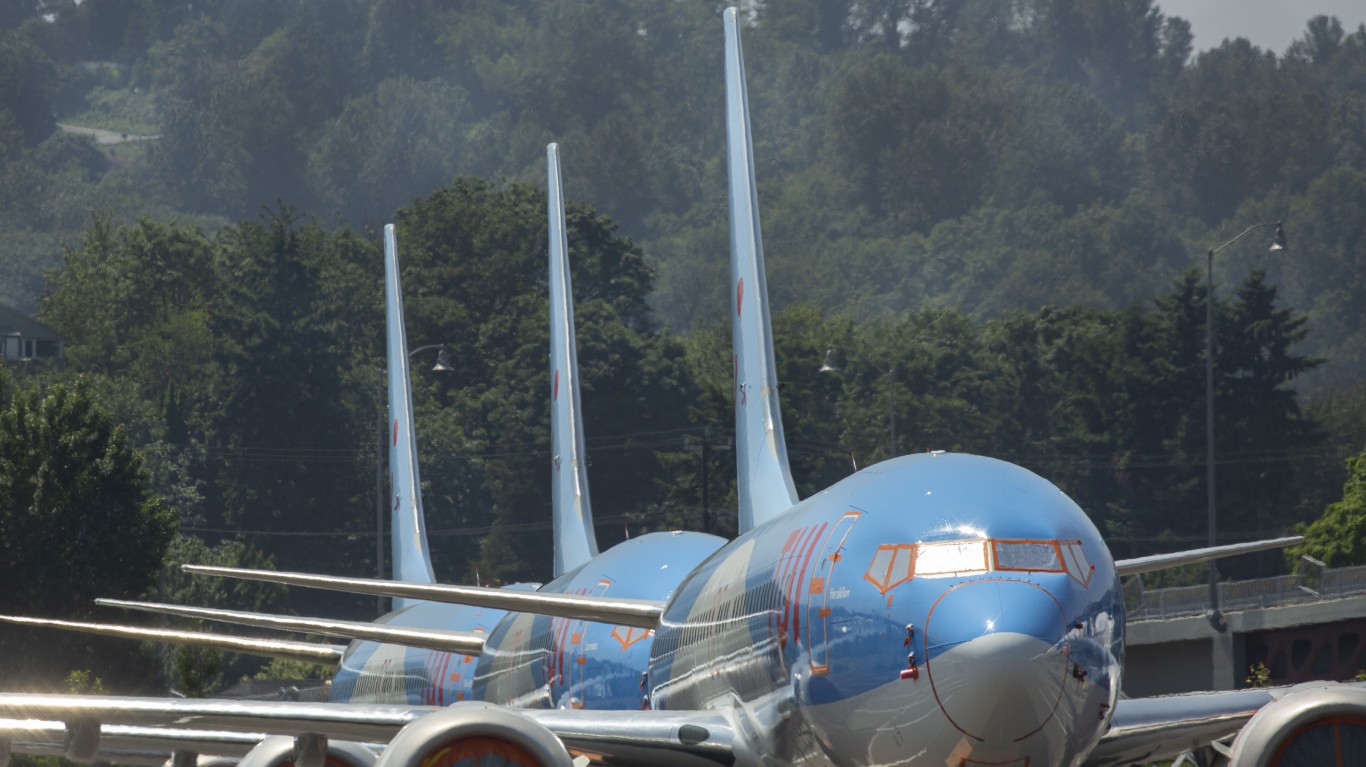
If an investor was only watching the performance of Boeing Co. (NYSE: BA) in recent weeks, there might be a euphoric feeling that everything would be returning to normal. If only things were that simple. Boeing has released its orders for the month of May, and the number of order cancellations exceeds the number of new orders.
Perhaps the only good news about the report, and perhaps somewhat unsurprising, is that Boeing has been able to sell cargo planes. On the side of looking “less bad,” the cancellations were fewer than what was seen in April and when rival Airbus effectively won no new jet orders.
Boeing secured nine cargo jet orders in May and delivered four jetliners in May. It also removed 18 jetliner orders and downgraded 77 jet orders in the month. That might make some investors wonder how Boeing’s stock price doubled in only about three weeks.
While Boeing has started 737 Max production efforts again, the plane has yet to be recertified by the Federal Aviation Administration and other watchdogs. This is the broad area of cancellations as well.
A fresh update from travel industry leader International Air Transport Association (IATA) now forecasts that the airline industry is likely to lose $110 billion globally in 2020 and 2021, with air travel down about 55% in 2020 and remaining subdued in 2021. That said, IATA also predicts that April was the bottom of the air traffic crunch around the COVID-19 pandemic and that some passenger returns are being seen.
In some form, 24/7 Wall St. had started to worry that the onset of the COVID-19 pandemic may have created a situation in which the 737 Max’s grounding no longer even mattered. After all, Boeing went from a company with the financially healthiest fleet of airline customers to an industry that couldn’t give plane tickets away and that needed fresh capital from the government real fast.
Due to airlines flying many fewer flights (generally less than 20% of capacity), the good news for the freight industry is that demand for cargo space on planes is now drastically higher than before. Busier trade routes to major hubs have in many cases brought close to a doubling of the prices from the pre-pandemic days. That has helped to create shortages or higher prices for food items, apparel, consumer electronics, medical equipment and many other import/export items.
As for the buyers in May, FedEx ordered one additional 767 and United Parcel Service ordered one more 747 jumbo plane. Five more 767s and two more 777s orders came from unidentified customers.
Of the cancellations, there were four in wide-body jets, three of which are in a dispute with a Russian airline. The 14 cuts to the 737 Max planes were against a loss of 108 orders the prior month. And contractual changes and financial weakness of airlines accounted for the 77 planes that saw their order status downgraded.
It turns out that the net −615 orders from January through May in 2020 is the largest change that has been seen in decades. While rival Airbus secured no new orders for its jets in May, it also had no cancellations and still delivered 24 planes.
Shares of Boeing traded down 3.4% at $222.75 on Tuesday afternoon. That is up more than 100% from the closing low in this recession on March 20, 2020, of $95.01, but the shares only dipped under $100 for just three trading days and were back up closer to $180 by March 26. Its lowest close thereafter was $120.00 on May 15, 2020, and the close a day before the fresh selling pressure and order data was $230.50.
One last issue to consider about the major run higher in Boeing shares is that the stock market tries to discount events for months into the future. If the worst was seen in April or May, then maybe Boeing may start seeing some rays of light poking through the clouds.
Get Ready To Retire (Sponsored)
Start by taking a quick retirement quiz from SmartAsset that will match you with up to 3 financial advisors that serve your area and beyond in 5 minutes, or less.
Each advisor has been vetted by SmartAsset and is held to a fiduciary standard to act in your best interests.
Here’s how it works:
1. Answer SmartAsset advisor match quiz
2. Review your pre-screened matches at your leisure. Check out the advisors’ profiles.
3. Speak with advisors at no cost to you. Have an introductory call on the phone or introduction in person and choose whom to work with in the future
Thank you for reading! Have some feedback for us?
Contact the 24/7 Wall St. editorial team.
 24/7 Wall St.
24/7 Wall St.



